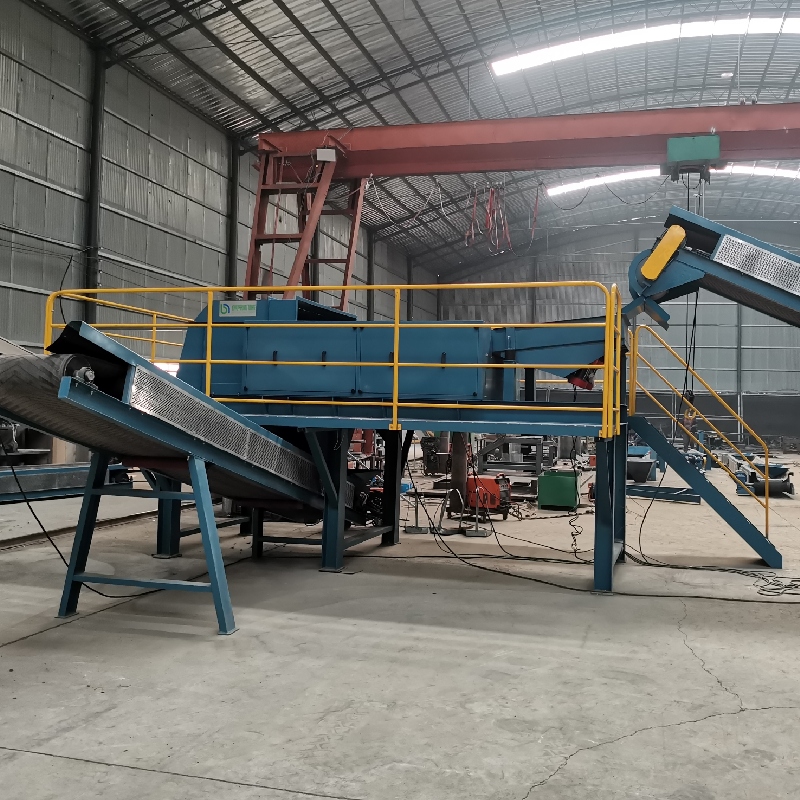

12-р сар . 02, 2024 07:30 Back to list
The Importance of Steel Recycling Plants
Steel is one of the most widely used metals in the world, making it a crucial component in various industries, including construction, automotive, and manufacturing. However, the production of steel is energy-intensive and results in significant carbon emissions. This is where steel recycling plants come into play, playing a vital role in creating a sustainable future while reducing environmental impacts.
Steel recycling plants are facilities specially designed to collect, process, and recycle scrap steel into new steel products. The recycling process not only conserves natural resources but also reduces the need for new steel production, which is environmentally taxing. The recycling of steel is a closed-loop process old steel items are collected, sorted, melted down, and transformed into new steel products. This cycle significantly lowers the energy consumption associated with producing steel from virgin materials.
One of the primary advantages of steel recycling is the conservation of natural resources. The extraction of iron ore, coal, and limestone, which are the primary raw materials for steel production, entails extensive mining operations that disturb ecosystems and deplete finite resources. Recycling steel alleviates the pressure on these resources, as recycled steel requires far less energy to process. In fact, recycling steel saves approximately 74% of the energy required to produce new steel from raw materials, emphasizing the energy efficiency of recycling operations.

Moreover, steel recycling plants contribute significantly to reducing greenhouse gas emissions. The steel industry is one of the largest industrial sources of carbon dioxide emissions, primarily due to the fossil fuels used in the production process. By recycling steel, plants can cut down emissions drastically. It is estimated that recycling just one ton of steel can prevent the release of approximately 1.5 tons of carbon dioxide into the atmosphere. This reduction is crucial in the fight against climate change and aligns with global sustainability goals.
Besides environmental benefits, steel recycling also has substantial economic advantages. The steel recycling industry creates jobs at various levels, from collection to processing and distribution. Moreover, recycled steel is often cheaper than newly produced steel because the costs associated with mining, transporting, and processing natural resources are eliminated. This price advantage makes recycled steel an appealing choice for industries looking to reduce costs without compromising on quality.
Steel recycling plants also foster a circular economy, where waste is minimized, and materials are reused and repurposed. In this economy, products are designed with their potential for recycling in mind, encouraging manufacturers to create steel products that can be easily disassembled and recycled at the end of their life cycle. This perspective leads to innovative designs and sustainable practices, ensuring that resources are utilized more efficiently.
In conclusion, steel recycling plants play an indispensable role in today’s society by minimizing environmental impact, conserving natural resources, and fostering economic growth. As awareness of sustainability issues increases, the demand for recycled steel will continue to grow. Investing in and supporting steel recycling facilities not only improves local economies but also contributes to a healthier planet. It is essential that we recognize the importance of recycling and advocate for the expansion of these facilities to ensure a sustainable future for generations to come.
Latest news
Troubleshooting Common Eddy Separator Problems
NewsJul.04,2025
The Role of Metal Recycling Plants in Circular Economy
NewsJul.04,2025
The Impact of Recycling Line Pickers on Waste Management Costs
NewsJul.04,2025
Safety Features Every Metal Shredder Should Have
NewsJul.04,2025
How Industrial Shredders Improve Waste Management Systems
NewsJul.04,2025
How Cable Granulators Contribute to Sustainable Recycling
NewsJul.04,2025